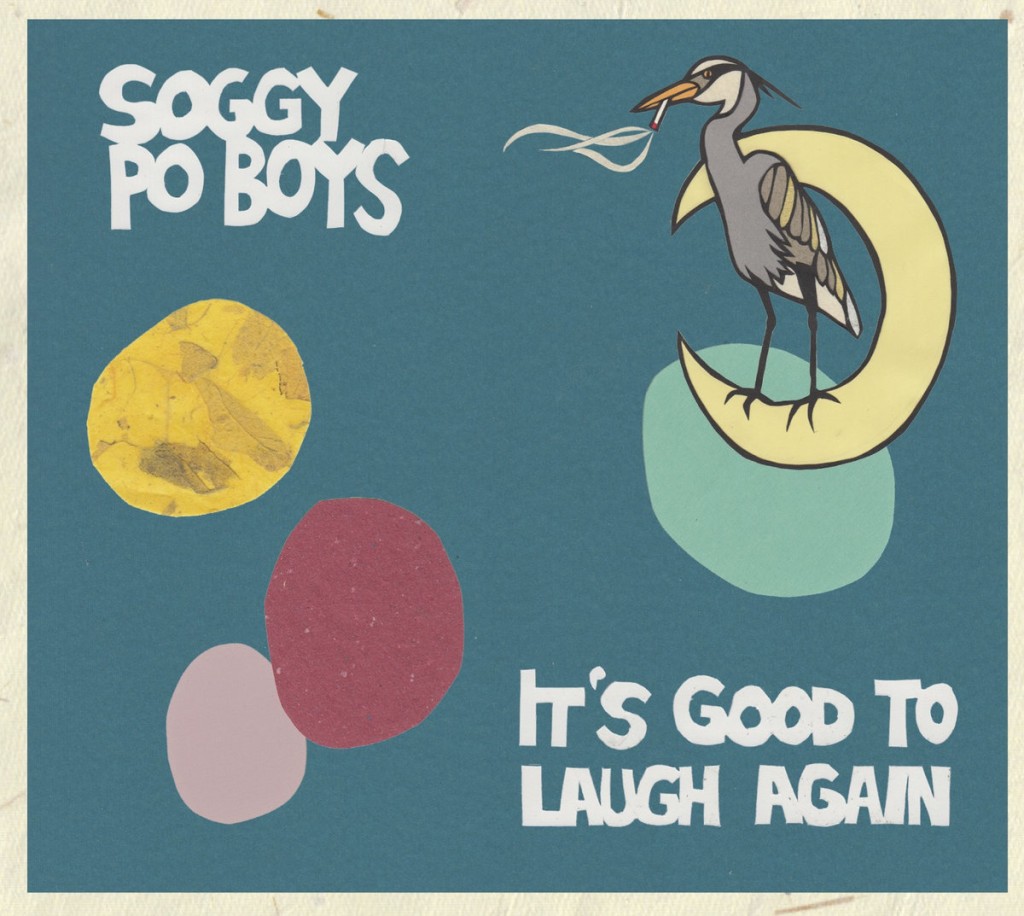 I stuck this record on without first looking at the track list. As the first number opened, I felt a thrill of excitement—it sounded like an up-tempo cover of “The Scrotum Song” by the Asylum Street Spankers, a hilarious neo-classic of the bawdy blues genre. Alas, this is not what it was—but a right rollicking start to the disc, all the same. “Maybe Baby” introduces the band members through a series of breakneck solos and duets establishing the New England outfit as one with New Orleans chops.
I stuck this record on without first looking at the track list. As the first number opened, I felt a thrill of excitement—it sounded like an up-tempo cover of “The Scrotum Song” by the Asylum Street Spankers, a hilarious neo-classic of the bawdy blues genre. Alas, this is not what it was—but a right rollicking start to the disc, all the same. “Maybe Baby” introduces the band members through a series of breakneck solos and duets establishing the New England outfit as one with New Orleans chops.
Track two takes the tempo right down with Josef Myrow’s “Blue Drag,” made famous by Django Reinhardt but here performed in a steady swinging style, rather than manouche. There’s something a bit David Lee Roth about Stu Dias’s vocal, for he delivers it with the full-throated bombast of a rock star. The difference is that Dias is backed by a superb live band, unlike Roth’s hideous “Just a Gigolo,” which featured a single Casio synthesizer in the hands of an enthusiastic teenager, I reckon.
Speaking of keys, I have to praise Mike Effenberger’s sparse but effective mid-track solo on “Blue Drag” for using the entire keyboard—including those rumbling bass notes, which he thumps enthusiastically. That’s not to say that his playing isn’t nuanced—just check out how his playing evolves steadily from the sparse to the solid on “Darktown Strutter’s Ball.” Or on “When You’re Smilin’,” on which his nimble fingering twinkles beneath Ralph Dias’s endearingly croaky guest vocal.
To prove their versatility, the Boys casually toss out a Caribbean folk song for their third number. “Ba Moin En Tibo” is an old tune from the French West Indies, and is given a distinctly Creole feeling by the New Orleans instrumentation. It’s not the only foreign-language track on the album, for the entire band joins in with the sung chorus of “Sous les Tropiques,” which has a distinct bossa nova feel. It’s great to hear a group pay homage to the many influences which went into the Louisiana melting pot which produced jazz, rather than picking one sound and sticking to it.
The Boys’ rendition of “Kiss of Fire” reminds me somewhat of Hugh Laurie’s version (yes, he’s a talented jazz pianist and singer, as well as playing America’s favorite antisocial pathologist on the small screen). Yes, it’s more of a swinging ballad than Laurie’s tango-inspired take, but it’s delivered with the same sultry smoothness possessed by the English entertainer.
Album closer “Light from the Lighthouse” takes the listener to church (actually, this whole work was recorded in a church) with a growling gospel vocal and some country-inspired piano. It starts relatively simple—see Zach Lange’s delightfully sweet trumpet solo—but pumps up the complexity as the track goes on, until the entire band is involved, ending with a bang. It’s a suitable epilogue to a disc which is varied in both flavor and tone, offering novelty from beginning to end.
After ten years and four albums, the Boys had racked up plaudits from critics across Europe and North America. The New Hampshire band had nothing left to prove—or perhaps, looking at it from another angle, they had a stellar reputation to uphold. Either way, album five is a worthy addition to their repertoire. Their website declares that “The Soggy Po’ Boys serve their jazz messy,” but I disagree—there ain’t nothin’ messy about these nine tight tunes. Check them out on Bandcamp, where you can pick up It’s Good to Laugh Again for just $10.
Dave Doyle is a swing dancer, dance teacher, and journalist based in Gloucestershire, England. Write him at davedoylecomms@gmail.com. Find him on Twitter @DaveDoyleComms.




















